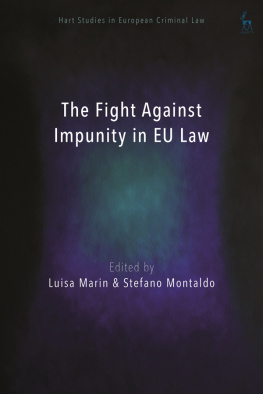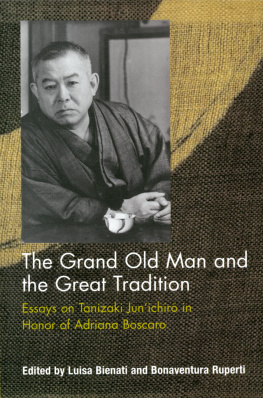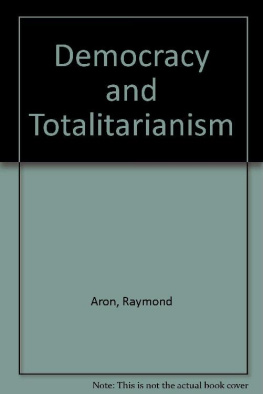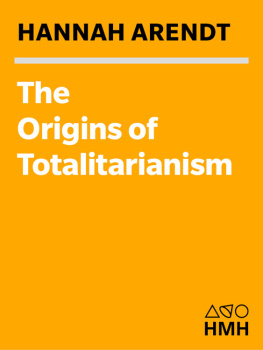First published in 1992 by Transaction Publishers by arrangement with Oxford University Press
Published 2017 by Routledge
2 Park Square, Milton Park, Abingdon, Oxon OX14 4RN
711 Third Avenue, New York, NY 10017, USA
Routledge is an imprint of the Taylor & Francis Group, an informa business
New material this edition copyright 2005 by Taylor & Francis.
Copyright The Several Contributors, 1992.
All rights reserved. No part of this book may be reprinted or reproduced or utilised in any form or by any electronic, mechanical, or other means, now known or hereafter invented, including photocopying and recording, or in any information storage or retrieval system, without permission in writing from the publishers.
Notice:
Product or corporate names may be trademarks or registered trademarks, and are used only for identification and explanation without intent to infringe.
Memory and totalitarianism / Luisa Passerini, editor; with a new introduction by Selma Leydesdorff and Richard Crownshaw.
p. cm(Memory and narrative series)
Originally published: Oxford; New York: Oxford University Press, 1992.
Includes bibliographical references.
ISBN 1-4128-0465-5 (alk. paper)
1. Oral history. 2. World politics20th century. 3. Totalitarianism. I. Passerini, Luisa. III. Memory and narrative.
D16.14.M46 2005
909.82dc22
2005045705
ISBN 13: 978-1-4128-0465-3 (pbk)
ISBN: 9780203785775 (ebk)
Contents
Introduction to the Transaction Edition
RICHARD CROWNSHAW AND SELMA LEYDESDORFF
List of Contributors
LUISA PASSERINI
FRANK STERN
LUTZ NIETHAMMER
DOROTHEE WIERLING
DARIA KHUBOVA, ANDREI IVANKIEV, and TONIA SHAROVA
IRINA SHERBAKOVA
ANDRS KOVCS
MARTHA ACKELSBERG
SELMA LEYDESDORFF
RENATE SIEBERT
Memory and Narrative Series Mary Chamberlain and Selma Leydesdorff series editors
Trauma: Life Stories of Survivors Kim Lacy Rogers and Selma Leydesdorff, editors (with Graham Dawson)
Commemorating War: The Politics of Memory Timothy G. Ashplant, Graham Dawson, and Michael Roper, editors
Environmental Consciousness: The Roots of a New Political Agenda Stephen Hussey and Paul Thompson, editors
Memory and Memorials: From the French Revolution to World War One Mathew Campbell, Jacqueline M. Labbe, and Sally Shuttleworth, editors
The Stasi Files Unveiled: Guilt and Compliance in a Unified Germany Barbara Miller
The Uses of Narrative: Explorations in Sociology; Psychology, and Cultural Studies Molly Andrews, Shelley Day Sclater, Corinne Squire, and Amal Treacher, editors
Narrative and Genre: Contests and Types of Communication Mary Chamberlain and Paul Thompson, editors
The Clash of Economic Cultures: Japanese Bankers in the City of London Junko Sakai
Narratives of Exile and Return Mary Chamberlain
On Silence and Revision: The Language and Words of the Victims
In Luisa Passerinis introduction to the original publication of this volume (1992), she turned her attention to the theme of silence in oral history and life stories. It is with this theme that we would like to begin our introduction to the new edition of Memory and Totalitarianism. As Passerini writes, the work of oral history has moved beyond its earlier, nave assumptions that one of its tasks was to simply give voice to those who had been silenced by history.... Fighting silence is not enough; silence is not even an appropriate term for the task to come: what is to be fought is not only silence but distortions.... Part of the memory that is emerging now, because it is no longer impeded, is sometimes just as false or wrong as the one it opposes (16). Passerini was writing with particular reference to the Holocaust. It is in the related areas of silence and revision that significant developments have taken place since this volumes first publication, and in doing so, we assume that these considerations will also influence the study of other totalitarian regimes.
Trauma studies and Holocaust studies, which have informed each others development since their inception as academic, interdisciplinary fields of inquiry, have produced some progressive debates on silence and revision, which might frame the consideration of oral histories of totalitarianism. Critical and theoretical discourses surrounding Holocaust trauma and memory and its inscription in testimony, both written and oral, have to a certain extent valorized the notion of silence. Such discourses trace (implicitly and explicitly) the inception of the concept of silence back to survivor literature such as Elie Wiesels Night (1958). In the face of the inadequacies of language and the failure of reason or metaphysical beliefs to grasp such an event, Night performs a paradox, the writing of silence. The concept of Night is, then, the void that surrounds and encroaches upon language and meaning. Primo Levis If This is a Man similarly expresses concern over the adequacy of language to translate the reality of the camps (1947 Italian, 1959 English). For Levi it is not just a case of the failure of language it is the failure of witness. The drowned, not the saved, are the true witnesses: they who have seen the absolute of the Holocaust and embody its impossible witness (The Drowned and the Saved, 1986 Italian, 1988 English).
The theorization of Holocaust writing, to which the relatively new discipline of Holocaust studies gave rise, has had to contend with the silence, voids, and absence that paradoxically gave form to testimonial literature. These studies have found meaning in what cannot be written, witnessed or remembered. From literary criticism to philosophy, Holocaust studies focused on what could not be said by and of the Holocausts victims, from George Steiners Language and Silence (1967) to Jean Francois Lyotards Differend: Phrases in Dispute (1983 French, 1988 English). The paradigm of the unspeakable, then, has framed the analysis of the oral histories of the Holocaust and has continued to do so.
Trauma studies have shown the way that silence is produced. For Dori Laub, [w]hile historical evidence to the event which constitutes the trauma may be abundant and documents in vast supply, and despite the overwhelming and compelling nature of the reality of its occurrence, the traumaas a known event and not simply as an overwhelming shockhas not been truly witnessed yet, has not been taken cognizance of. It is only in the process of testimony that the event is given birth to or known. Such cognizance is dependent upon those who listen, who witness the witnesswho become the blank screen onto which the event is projected as if for the first time (Laub 1992, 57; see also Rogers, Leydesdorff et al. 1999). Cathy Caruth similarly defines trauma as a crisis of witnessing (1996). For Caruth, Felman and Laub, this does not mean that historicism is redundant but that it must be resituated as no longer straightforwardly referential...permitting history to arise where immediate understanding may not (Caruth 1996, 11). Emerging from this understanding of traumatic experience is the idea that silence is not a sign of the elimination of history but of its dislocation (Caruth 1996, 11).









